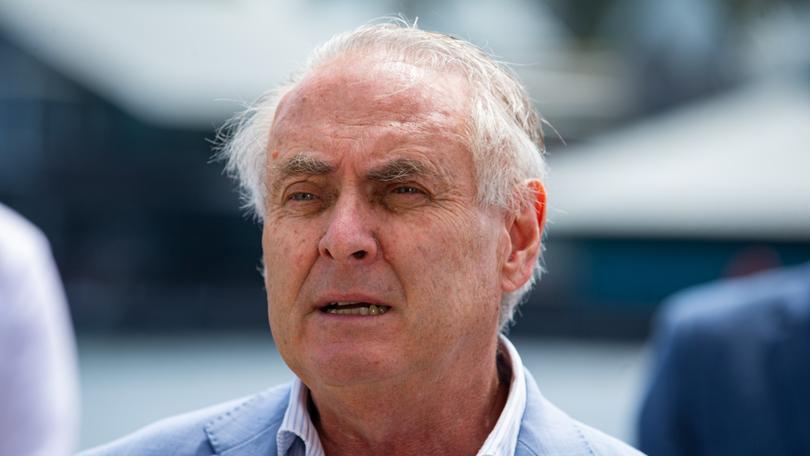Limits on size of campaign donation spending aims to end political arms race in Australia
Campaign spending will be restricted to $90 million nationally and individual donations capped at $20,000 in an overhaul of electoral laws the Government wants to push through parliament within a fortnight.

A crackdown to end the big-money arms race in Australian politics will impose limits on the size of donations and restrict campaign spending to a maximum of $90 million across the country.
Special Minister of State Don Farrell has struck an in-principle deal with the Coalition to pass the new laws in the next fortnight, although they won’t come into effect until mid-2026.
The overhauled regime he will unveil on Friday means parties cannot spend more than $90m in a year, or at most $800,000 on any individual electorate.
Sign up to The Nightly's newsletters.
Get the first look at the digital newspaper, curated daily stories and breaking headlines delivered to your inbox.
By continuing you agree to our Terms and Privacy Policy.Unions, third parties like GetUp and Advance, and associated entities who also want to campaign will have lower spending limits of about $11m nationally.
Fears about the influence of big money peaked in the 2022 election, when Clive Palmer’s United Australia party spent more than $120m and the individual-candidate spend topped more than $1m in several of the seats teal independents won from Liberals.
The Liberals and Nationals spent a combined $131m while Labor branches spent $116m.
The Government’s aim is to knock out the big-spending outliers while setting the caps high enough to withstand legal challenges.
Mr Palmer has already indicated he’ll take any limits on campaign funding to the High Court.
The spending caps come with new restraints on donations, both on the giving and receiving ends.
Candidates or party branches cannot receive more than $20,000 from a single source in one year while donors cannot give more than $600,000.
That means, for example, one person couldn’t give $20,000 to Madeleine King and a further $20,000 to her colleague Anne Aly — they could only give one $20,000 to WA Labor.
However, if a person wanted to donate to multiple independent candidates, they could do so up to the maximum of $600,000.
A new disclosure regime requires any donation above $1000 be declared — dropping the threshold from $16,900 — and parties must reveal their funding sources monthly.
The tempo of transparency would increase during elections, with weekly disclosures during the first part of a campaign and daily in the week on either side of polling day.
Tighter rules around what has to be revealed about money raised from business forums and fundraising dinners will also come into effect.
Senator Farrell said years of inquiries and evidence from multiple elections had shown the influence of big money was the biggest weakness in our political system.
“Over the last decade we have seen billionaires repeatedly attempt to sway our elections, not through policy or participation, but through money and misinformation,” he said.
To help compensate for the restrictions on donations, public funding lifts from $3.346 to $5 per vote received and every elected party or independent would get “administrative funding” of $30,000 per MP and $15,000 per senator to comply with the new rules.
The Coalition is yet to see the final version of the legislation but believed it was unlikely to need further committee scrutiny unless there were any major surprises.
The changes will still need the tick-off from its party room meetings on Tuesday.
The Government will put a truth in political advertising bill up at the same time but acknowledges it doesn’t have the support to pass at this stage.
Originally published on The Nightly

